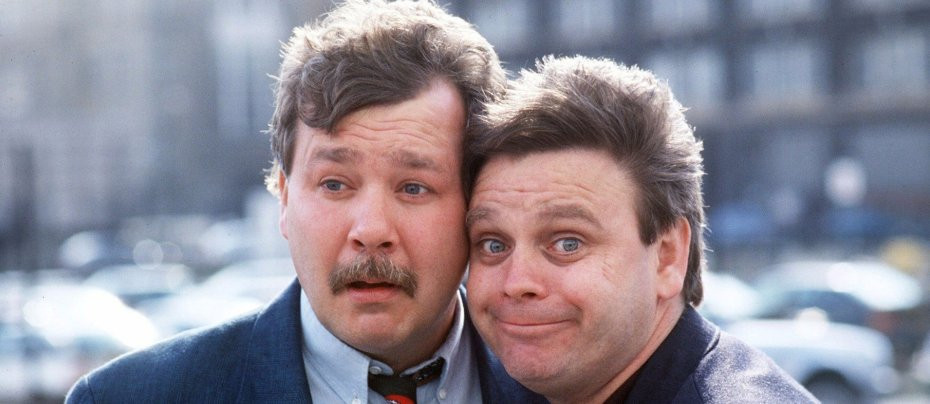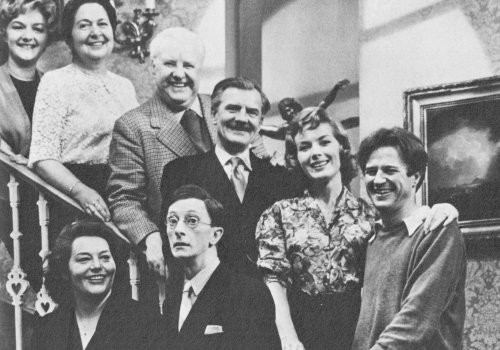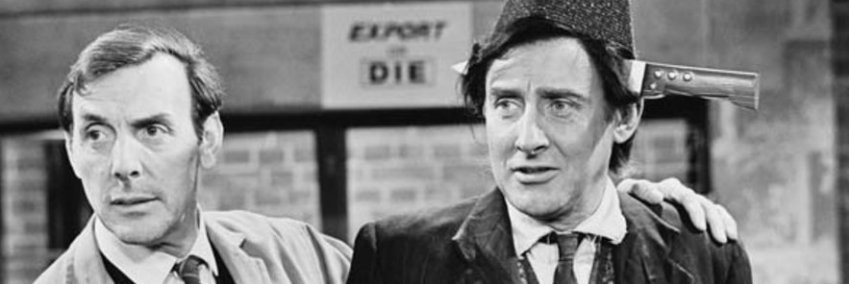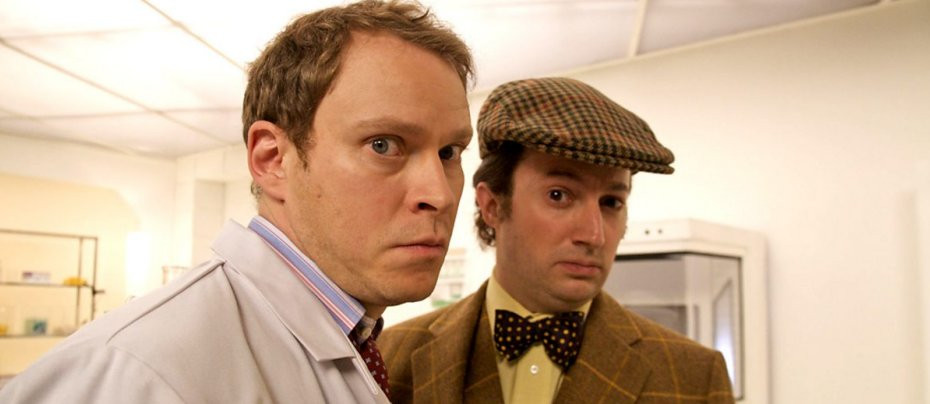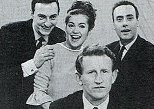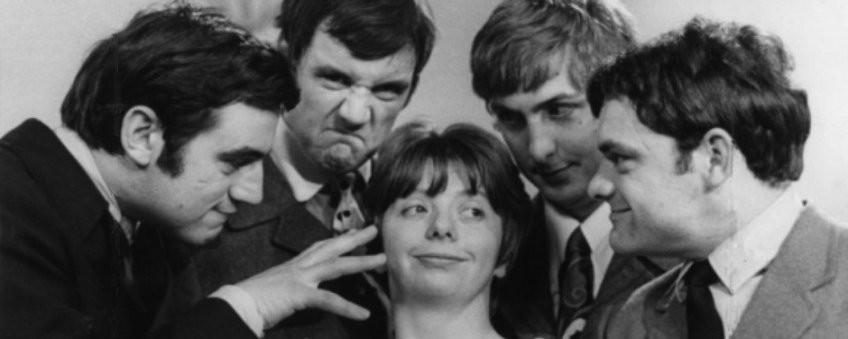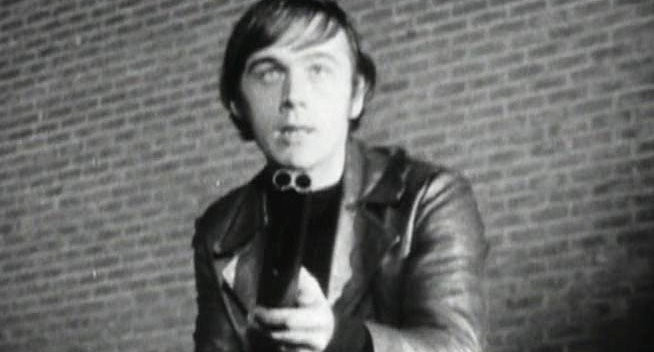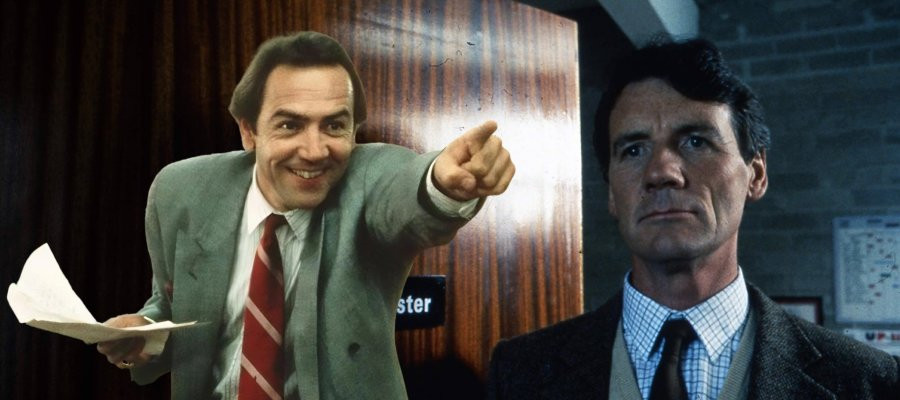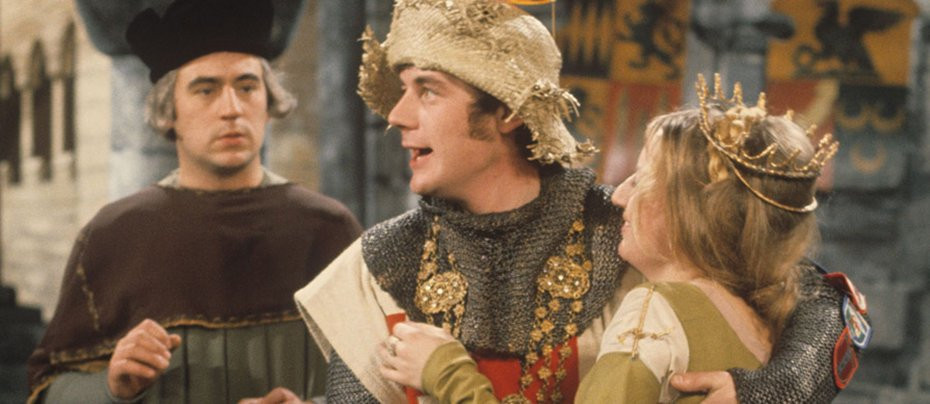
The Complete and Utter History of Britain
1969 - United KingdomLaying the foundations for the seminal Monty Python's Flying Circus
Review by Daniel Tessier
The Complete and Utter History of Britain was, for a long time, a tragically incomplete history. Following the six-part series' broadcast in early 1969, it was shelved at ITV and was long considered wiped, until the first two episodes were discovered in 2004. Then, with no fanfare, the entire series appeared for streaming on Britbox and ITVX in September 2023. The missing four episodes had been sitting in the ITV storerooms for decades, mislabelled, and after some restoration work, were brought back up to broadcast standard.
This still isn't quite the complete Complete and Utter History though. The series was produced as seven episodes, but producers at LWT combined elements from the first two into a single opening episode, discarding around 25 minutes of material. Director Maurice Murphy (Doctor in the House) was so angry at the treatment of his programme that he took copies of these original episodes home. These were released on DVD in 2014, along with the first two episodes as broadcast.
While it's a treat to be able to finally watch the series as it was originally shown, it remains most notable for its role in British comedy history. Terry Jones and Michael Palin had met at Oxford and begun writing and performing comedy sketches there (along with Robert Hewison, who actually became a noted historian instead of carrying on with the silly stuff). After university, Palin and Jones worked on a theatrical documentary about sex throughout history, an early exploration of their comedic approach to history. Nothing came of this, but they were quickly snapped up by the BBC to write sketches for various series including The Ken Dodd Show and The Frost Report, the latter of which saw them work with future fellow Pythons John Cleese and Graham Chapman.
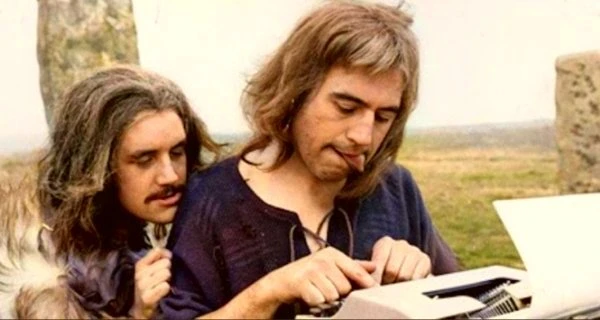
1967 saw the broadcast of the first series of children's comedy show Do Not Adjust Your Set, which also featured Eric Idle, and the short-lived sketch show Twice a Fortnight. This latter series included a sketch which imagined how historical events would look if television had been around at the time. This became the basis for The Complete and Utter History, which became the first series created by Palin and Jones to truly explore their fascination for history through the sketch format. Like Do Not Adjust Your Set, the series experimented with more surreal humour than was usual at the time, laying the foundations for the seminal Monty Python's Flying Circus. 1969 was the year it all happened: after The Complete and Utter History, the second and final series of Do Not Adjust Your Set was filmed and broadcast, with Terry Gilliam now onboard to provide animations. The six Pythons were now all in place, and before the year was out, the first series of Flying Circus began broadcasting.
The Complete and Utter History of Britain attempts to be exactly what it says, a whistle-stop tour through British (although mostly English) history, mixing sketch comedy with a mock-educational format. While Palin and Jones take on most of the major roles, they are joined by Wallas Eaton (Take it From Here, O Lucky Man!) who takes on many significant parts, including, according to the final score, “Five kings, two popes, one archbishop, one bishop, one newspaper salesman.”
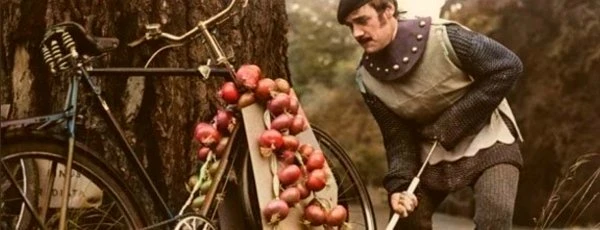
Colin Gordon (The Prisoner, The Baron) is credited as narrator but is actually the presenter of the faux-factual programme that acts as a framing device for the sketches. His delivery is quite incredibly humourless, putting him in the position of the long-suffering straight man who doesn't seem to realise he's running a comedy programme. Roddy Maude-Roxby (Rowan & Martin's Laugh-In, Parallel 9) has a recurring role as the eccentric Professor Weaver, a perpetually confused historian who provides context for the sketches.
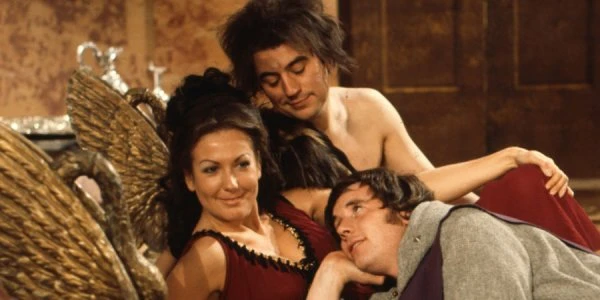
The wider cast includes the “Barmy Army” of Ted Carson, Colin Cunninghman, John Hughman and Johnny Vyvyan, with several appearances by Melinda May and, very early in her career, the excellent Diana Quick (Brideshead Revisited, The Queen) when attractive women are required.
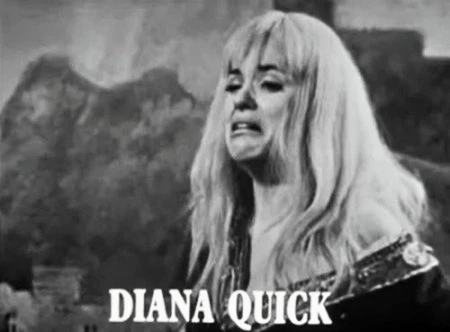
The six episodes run the course of history from the alleged Dawn of Time through to the end of the English Commonwealth, and while there was clearly the scope and intention to make more, it's easy to see why the programme didn't return to finally complete the history of Britain. While there are glimmers of brilliance, this comes across as early draft Monty Python. Part of the issue is that the rest of the cast don't really run with the material in the same way as Palin and Jones, either playing it too straight or too broad, never getting the balance it needs. The material is generally good, and some of it must have been bizarre and surprising for the time. The best sketches are more about satirising television itself, such as a cracking one in the first episode where William the Conqueror is interviewed in the shower room in the style of rowdy post-match coverage. Other memorable sketches include a stone-age estate agent trying to flog Stonehenge to a young couple; a group of Puritans trying to book the most miserable trip possible from a travel agent (with a silly but fun punchline); and a deeply silly telling of Perkin Warbeck's attempt to pass himself off as Richard of Shrewsbury.
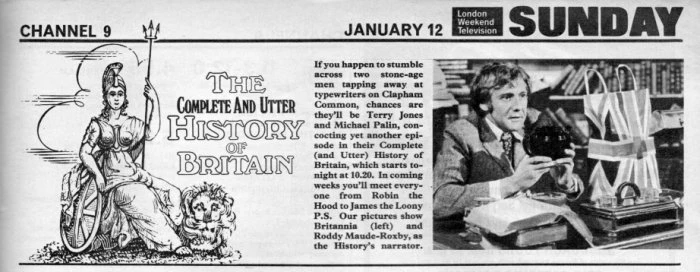
On the other hand, there's too much reliance on broad comedy, such as cross-dressing and unskilled slapstick, that must have looked pretty old hat even in 1969. Repeatedly cutting back to Gordon in the studio robs the programme of its momentum, and the Professor's segments aren't nearly as clever as they need to be to really make them work. There's promise here, that's obvious, but it needs the refining touch of a skilled troupe of comedy writers who are ready to criticise and rewrite each other's work.
As such, The Complete and Utter History of Britain is an entertaining enough aside that, even when available in its entirety, is destined to remain known as a stepping stone to the greater success of Monty Python's Flying Circus. The joy of playing with history continues in that series, with such classic sketches as the Spanish Inquisition, and beyond into the films Monty Python and the Holy Grail and Life of Brian. Palin and Jones would return to historical comedy in the seventies with Ripping Yarns. Palin's final foray into historical comedy would be the 1982 film The Missionary, and Jones would later take a more serious, but equally iconoclastic pop at history with Terry Jones' Medieval Lives and Terry Jones' Barbarians.
Seen this show? How do you rate it?
Seen this show? How do you rate it?
Published on October 23rd, 2023. Written by Daniel Tessier for Television Heaven.



